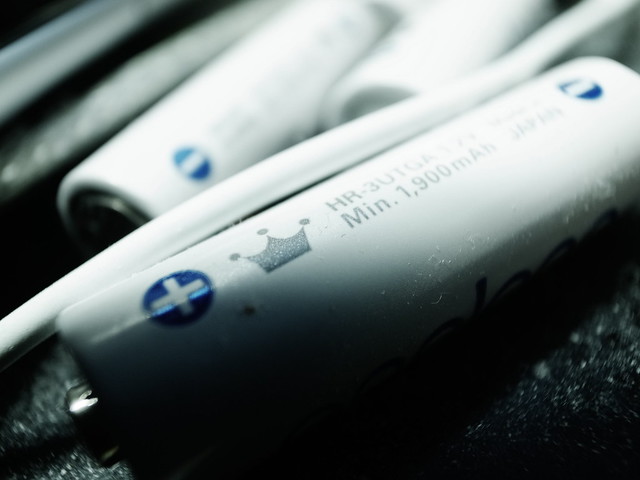Battery Management System for Lithium-ion Batteries-Need and Working
Mar 09, 2020 Pageview:1234
What is the battery management system for lithium-ion batteries?
BMS typically stands for battery management system and is the master-mind of the famous deep cycle lithium batteries. The BMS is responsible for taking good care of the cells and preventing them from being damaged in many ways. For example, in the case of short-circuiting, the BMS would shut off the battery, therefore, protecting the cells and user of the battery.
The most crucial function of a lithium-ion battery management system is to make sure that the cells are safe to work with on their intended devices. If anyone of the intended cells starts malfunctioning, the battery management system then has to take action and control the situation bringing the cells back to safe and regular standards.
The functions or actions taken on the cells depend on the type of BMS installed into the batteries. A good BMS tend to disconnect all the loads whenever the voltage drops too low and also disconnect the chargers as soon as the voltage goes too high. The BMS also confirms that the voltage in each cell is similar across the entire while bringing down the voltage of any cells that may be higher than others. Doing this ensures that the cells are not susceptible to extremely high or low voltages, which is what typically damages the batteries and causes battery fires.
The BMS even monitors the battery temperature and disconnects the pack from charge long before it gets too hot to handle or control. It is, therefore, essential to have any lithium-ion battery protected by a BMS instead of having blind faith on the “excellent chargers” or proper user operation.
It also regulates the amount of power that you can drain from the battery. This ensures that you do not overload a battery and, thus, damage it in the process. For example, if a battery on a 100 amp-hour battery, a suitable BMS would be rated 100amps continuous, 200 amps for about 30 seconds, and any higher loads for ? second. As such, the BMS of any lithium-ion battery is technically the protection measure that stands between the cells and potential damage during their operations.
Why do you need a battery management system for lithium-ion batteries?
Lithium-ion batteries need a BMS because they aren’t the perfect batteries. They are susceptible to damage when exposed to extreme conditions such as high voltages, extreme temperatures, high current, and any others. A BMS, therefore, serves to protect the batteries and ensure that they usually function even when subjected to such conditions.
How does a battery management system for lithium-ion batteries work?
Lithium-ion batteries pack a lot of power into small packages because the chemistry of these batteries tends to be one of the most significant factors to their impressive performance. However, modern lithium-ion batteries have a well-designed battery management system (BMS) that is also responsible for the battery’s high-performance records. A good BMS is designed to protect and monitor a lithium-ion battery and ultimately optimize their performances, maximize lifespan, and ensure that they are safe to operate in a broad range of conditions.
Many a time, lithium-ion battery users have heard of a BMS but don’t know how exactly it helps their batteries. The following are some of how these systems protect a battery.
1.Over/under voltage protection
Lithium-ion batteries operate within a safe range of voltages with the normal battery cells reaching up to 3.0V. The chemistries used in the construction of this battery technology contain highly reactive compounds, and this makes them sensitive to extreme voltages. When exposed to high voltages over and extended period, the battery’s performance significantly degrades due to plating on the nodes of the cells. The material used on the cathode also tends to oxidize and, thus, becomes less stable producing gases that may eventually build up pressure within the cells.
The BMS installed into these batteries limit each one of the cells and the battery at large to a maximum voltage. On the other hand, undervoltage is also a concern in BMS because when the cells are discharged below the cut-off voltage, it may result in the spontaneous breakdown of materials in the electrodes. Lithium-ion batteries have a specific recommended minimum operational voltage that users are advised not to discharge below as it could harm the batteries. The BMS, therefore, serves as a failsafe that tends to disconnect the battery from the circuit if it notices any cell dropping below the cut-off voltage.
2.Protection from extreme temperatures
Unlike lead-acid batteries, lithium-ion batteries can operate safely at much higher temperature ranges. However, when any battery is subjected to extreme temperatures, the electrode material degrades gradually until finally, the cells malfunction. The BMS installed in these cells makes use of embedded thermistors to monitor the temperature changes during their operation actively and, therefore, the relevant action towards a suitable solution. The BMS disconnects that battery from the circuits during high temperatures and thus prevents the cells from going through thermal runaway and eventually bursting into flames.
3.Cell balancing
There is a significant difference in balancing the voltage in each cell during charging between lead-acid and lithium-ion batteries. Due to minor manufacturing differences or various operational conditions, every cell in a battery tends to charge at a slightly different rate from the rest.
Unlike lead-acid batteries, which had self-equalizing cells during charge, lithium-ion battery voltage tends to rise further upon full charge. If the charge of the whole battery is halted when only one cell is fully charged, then the remaining cells won’t be able to reach full charge thus, forcing the battery to operate below its peak capacity. A good BMS ensures that each cell safely and efficiently charges to full capacity before the charging process is stopped.
4.Protection from overcurrent and short-circuits
Every battery comes with a maximum specified limit for current flow within safe operations. If a load is put on the battery and it draws a higher current than the set limit, it could adversely make the battery overheat. A well-designed BMS serves as a backstop against overcurrent situations by disconnecting the battery from the circuit immediately before further damage to the cells occurs.
Short-circuits tend to be the most severe form of overcurrent conditions and could damage the cells while electrocuting the user handling the pack. A BMS detects the short-circuit and immediately shuts down the battery for its protection until the condition is dealt with.
Takeaway
BMS technology is the ideal solution to help protect both the user and battery from any damage that may emerge from various conditions that threaten to harm the two parties. This system aims to protect, monitor, and extend the lifespan of your lithium-ion battery. It is, therefore, essential to ensure that every pack you buy has a BMS installed.
- Prev Article: Lithium Battery Maintenance-Charging and Cycle Life
- Next Article: Streamlight Stinger Lithium Battery - Life Cycle and Test
Leave Message
Hottest Categories
-
Hottest Industry News
-
Latest Industry News














